Find details about our associate members (listed in alphabetic order) below. Clicking on thumbnails gives access to personal websites when available.
 Sacha Bourgeois-Gironde. Professor in economics, University Paris 2. His research, at the frontiers of experimental economics and cognitive sciences, bears mainly on two topics : i) the emergence of human collective institution (money, language, politics) and ii) how cognitive microstructure (eg. belief updating, channeling in heterogenous information, temporal anticipation, etc.) are modulated by economic environments. Sacha Bourgeois-Gironde. Professor in economics, University Paris 2. His research, at the frontiers of experimental economics and cognitive sciences, bears mainly on two topics : i) the emergence of human collective institution (money, language, politics) and ii) how cognitive microstructure (eg. belief updating, channeling in heterogenous information, temporal anticipation, etc.) are modulated by economic environments. |
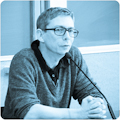 Gérald Bronner. Professor in sociology, University of Paris-7-Denis Diderot (France). Social perception of risks. Gérald Bronner. Professor in sociology, University of Paris-7-Denis Diderot (France). Social perception of risks. |
 Peter Brugger. Professor in neuropsychology, University Hospital of Zürich, (Switzerland). The pitfalls of sequential randomness in the scenario of guessing and the proclivity to “see” meaning in random configurations (pronounced for believers in the paranormal). Random number generation as a means to explore the embodied nature of numerical representations. Peter Brugger. Professor in neuropsychology, University Hospital of Zürich, (Switzerland). The pitfalls of sequential randomness in the scenario of guessing and the proclivity to “see” meaning in random configurations (pronounced for believers in the paranormal). Random number generation as a means to explore the embodied nature of numerical representations. |
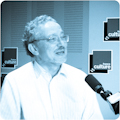 Jean-Paul Delahaye. Professor in computer science, University of Lille (France). Kolmogorov complexity, randomness. Jean-Paul Delahaye. Professor in computer science, University of Lille (France). Kolmogorov complexity, randomness. |
 Shira Elqayam. Reader in Cognitive Science, De Montfort University, Leicester, UK. Shira Elqayam. Reader in Cognitive Science, De Montfort University, Leicester, UK.Research interests in reasoning, decision making and rationality, with a special focus on normative thinking and is-ought inference. https://www.researchgate.net/profile/Shira_Elqayam. |
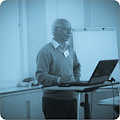 Angelo Gilio. Professor at the ‘Sapienza university of Rome’ (Italy). He is a specialist of Subjective probability and probability logic. He works on the notion of coherent probability and especially on the algorithms for coherence checking and propagation of conditional probability bounds. Angelo Gilio. Professor at the ‘Sapienza university of Rome’ (Italy). He is a specialist of Subjective probability and probability logic. He works on the notion of coherent probability and especially on the algorithms for coherence checking and propagation of conditional probability bounds. |
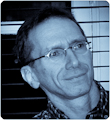 Igor Douven. Directeur de Recherche at the CNRS (Laboratoire Sciences, Normes et Décisions). His main research areas are conditionals, concepts, confirmation theory, and social epistemology. In all areas, he’s very much in favor of interdisciplinary approaches. Igor Douven. Directeur de Recherche at the CNRS (Laboratoire Sciences, Normes et Décisions). His main research areas are conditionals, concepts, confirmation theory, and social epistemology. In all areas, he’s very much in favor of interdisciplinary approaches. |
 Jean-Charles Houillon. School psychologist and associate professor at the E-learning Institute, University Paris-Saint-Denis (France). His research interests comprise the development of attentional processes in the school, educational studies and their relation to thinking and reasoning. Jean-Charles Houillon. School psychologist and associate professor at the E-learning Institute, University Paris-Saint-Denis (France). His research interests comprise the development of attentional processes in the school, educational studies and their relation to thinking and reasoning. |
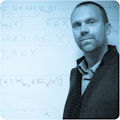 Joost J. Joosten works at the University of Barcelona (Spain), Department of Logic, History and Philosophy of Science. One line of his research concerns the foundations of mathematics. Another line of research focusses on the role of complexity in deductive and cognitive sciences. Joost J. Joosten works at the University of Barcelona (Spain), Department of Logic, History and Philosophy of Science. One line of his research concerns the foundations of mathematics. Another line of research focusses on the role of complexity in deductive and cognitive sciences. |
 Éric Laurent is an Associate Professor of Cognitive Psychology at the University of Franche-Comté, Besançon, France. He is interested in complexity and specialized in embodiment, mood, and eye movement. He recently developed a “Multiscale Enaction Model” in which several cognitive and affective factors are related to perception-action cycles. Éric Laurent is an Associate Professor of Cognitive Psychology at the University of Franche-Comté, Besançon, France. He is interested in complexity and specialized in embodiment, mood, and eye movement. He recently developed a “Multiscale Enaction Model” in which several cognitive and affective factors are related to perception-action cycles. |
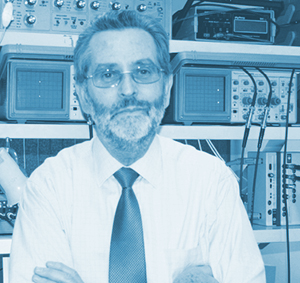 Jean-François Lambert, Honorary lecturer in neuroscience (Pierre and Marie Curie, Paris 8 Vincennes – Saint-Denis universities). Former Deputy Director of the Paris 8 university’s Institute of Distance Education (IED). Jean-François Lambert, Honorary lecturer in neuroscience (Pierre and Marie Curie, Paris 8 Vincennes – Saint-Denis universities). Former Deputy Director of the Paris 8 university’s Institute of Distance Education (IED).Associate Professor at the Institute of Comparative Philosophy (Free Faculty Philosophy and Psychology). Impact of the environment (geophysics, instrumental and social) on brain activity , learning and sleeping. multifactorial approach to communication . Brain and consciousness – Critical analysis of cognitive neuroscience (epistemological and anthropological aspects) |
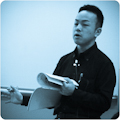 Yoshimasa Majima. Assistant professor, School of Social Welfare, Hokusei Gakuen University (Japan). Inductive reasoning, hypothesis testing, informal reasoning. Yoshimasa Majima. Assistant professor, School of Social Welfare, Hokusei Gakuen University (Japan). Inductive reasoning, hypothesis testing, informal reasoning. |
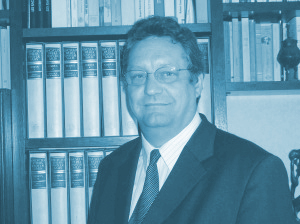 Marc Maulinet. Director of the Executive Master Management and disability policies. Institute of political studies in Paris, Independent consultant for the Council of Europe. Marc Maulinet. Director of the Executive Master Management and disability policies. Institute of political studies in Paris, Independent consultant for the Council of Europe. |
 Hugo Mercier. Ambizione fellow, Cognitive Science Center from the University of Neuchâtel (Swiss). Argumentative theory of reasoning. Hugo Mercier. Ambizione fellow, Cognitive Science Center from the University of Neuchâtel (Swiss). Argumentative theory of reasoning. |
 Kinga Morsanyi. Lecturer (assistant professor) at Queen’s University, Belfast (Ireland). Development of reasoning skills in typical development and in special populations, reasoning heuristics, probabilistic reasoning, analogical reasoning, and how reasoning skills can be improved through training. She is also interested in how affective states influence reasoning abilities and people’s decisions. Kinga Morsanyi. Lecturer (assistant professor) at Queen’s University, Belfast (Ireland). Development of reasoning skills in typical development and in special populations, reasoning heuristics, probabilistic reasoning, analogical reasoning, and how reasoning skills can be improved through training. She is also interested in how affective states influence reasoning abilities and people’s decisions. |
 Hiroko Nakamura. Researcher in Nagoya University (Japan). Deductive reasoning, heuristic and analytic process in reasoning. Hiroko Nakamura. Researcher in Nagoya University (Japan). Deductive reasoning, heuristic and analytic process in reasoning. |
 Mike Oaksford. Professor of psychology and head of the department of psychological sciences, Birkbeck College, University of London (UK). His research takes a Bayesian probabilistic approach to how people reason and construct arguments. From this point of view, many biases in deductive reasoning and fallacies of informal argumentation may be seen in a more rational light. This research involves experimental work and modelling. He is also interested in how the emotions, both experienced and anticipated, affect people’s reasoning and decision making. Mike Oaksford. Professor of psychology and head of the department of psychological sciences, Birkbeck College, University of London (UK). His research takes a Bayesian probabilistic approach to how people reason and construct arguments. From this point of view, many biases in deductive reasoning and fallacies of informal argumentation may be seen in a more rational light. This research involves experimental work and modelling. He is also interested in how the emotions, both experienced and anticipated, affect people’s reasoning and decision making. |
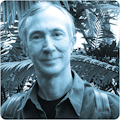 David Over. Emeritus Professor, Psychology Department, Durham University, Durham (UK). The psychology of reasoning and probability judgment. David Over. Emeritus Professor, Psychology Department, Durham University, Durham (UK). The psychology of reasoning and probability judgment. |
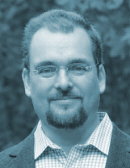 Niki Pfeifer was awarded his first PhD (with distinction) in psychology at the University of Salzburg (Austria) in 2006 and his second PhD (with distinction) in philosophy at the Tilburg Center for Logic and Philosophy of Science (The Netherlands) in 2012. He is currently a senior research fellow at the Munich Center for Mathematical Philosophy and project leader within the DFG Priority Program New Frameworks of Rationality. Moreover, he is lecturing at the University of Regensburg and an external member of the Düsseldorf Center for Logic and Philosophy of Science. Niki Pfeifer was awarded his first PhD (with distinction) in psychology at the University of Salzburg (Austria) in 2006 and his second PhD (with distinction) in philosophy at the Tilburg Center for Logic and Philosophy of Science (The Netherlands) in 2012. He is currently a senior research fellow at the Munich Center for Mathematical Philosophy and project leader within the DFG Priority Program New Frameworks of Rationality. Moreover, he is lecturing at the University of Regensburg and an external member of the Düsseldorf Center for Logic and Philosophy of Science. |
 Guy Politzer. Associate Researcher, Institut Jean Nicod (ENS, EHESS, CNRS), Paris (France). The psychology of reasoning and its linguistic (pragmatic and semantic) constraints. Guy Politzer. Associate Researcher, Institut Jean Nicod (ENS, EHESS, CNRS), Paris (France). The psychology of reasoning and its linguistic (pragmatic and semantic) constraints. |
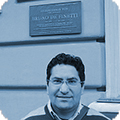 Giuseppe Sanfilippo. Assistant Professor of Probability at the University of Palermo (Italy). subjective probability, coherence-based probabilistic reasoning, imprecise probability, proper scoring rules, probability elicitation, probabilistic default reasoning, square and hexagon of opposition, probabilistic semantics of syllogisms, and compounds and iterations of conditionals in probabilistic reasoning under coherence. Giuseppe Sanfilippo. Assistant Professor of Probability at the University of Palermo (Italy). subjective probability, coherence-based probabilistic reasoning, imprecise probability, proper scoring rules, probability elicitation, probabilistic default reasoning, square and hexagon of opposition, probabilistic semantics of syllogisms, and compounds and iterations of conditionals in probabilistic reasoning under coherence. |
 Fernando Soler-Toscano. Assistant professor in logic, University of Seville (Spain). Non-classical logics, dynamic epistemic logic, abductive reasoning. Fernando Soler-Toscano. Assistant professor in logic, University of Seville (Spain). Non-classical logics, dynamic epistemic logic, abductive reasoning. |
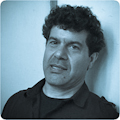 Steven Sloman. Professor of Cognitive, Linguistic, and Steven Sloman. Professor of Cognitive, Linguistic, andPsychological Sciences at Brown University (USA). He studies causal reasoning, decision making, and other aspects of higher-level cognition. |
 Tatsuji Takahashi. Assistant professor, School of Science and Engineering, Tokyo Denki University (Japan), Cognitive science, artificial intelligence, and complex systems. Tatsuji Takahashi. Assistant professor, School of Science and Engineering, Tokyo Denki University (Japan), Cognitive science, artificial intelligence, and complex systems. |
 Valerie Thompson is a Professor of Cognitive Psychology at the University of Saskatchewan. Her research interests include intuitive judgments, thinking and decision-making, and metacognition (that is, how we evaluate the accuracy of our thought processes). She is currently Past President of the Canadian Society of Brain, Behaviour, and Cognitive Science, and Editor-in-Chief of the Journal Thinking & Reasoning. Her research program has been continously funded by the Natural Sciences and Engineering Research Council of Canada since 1991. Valerie Thompson is a Professor of Cognitive Psychology at the University of Saskatchewan. Her research interests include intuitive judgments, thinking and decision-making, and metacognition (that is, how we evaluate the accuracy of our thought processes). She is currently Past President of the Canadian Society of Brain, Behaviour, and Cognitive Science, and Editor-in-Chief of the Journal Thinking & Reasoning. Her research program has been continously funded by the Natural Sciences and Engineering Research Council of Canada since 1991. |
 Hector Zenil. Research fellow at Karolinska Institutet (Sweden) and head of the Algorithmic Nature group, Information Theory and Computational Biology. Hector Zenil. Research fellow at Karolinska Institutet (Sweden) and head of the Algorithmic Nature group, Information Theory and Computational Biology. |

